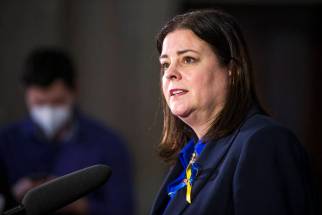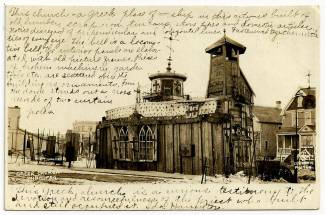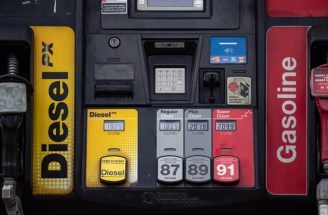‘Eye-popping’ gas prices Everything from groceries to restaurant meals is getting more expensive thanks to record-setting fuel costs
Read this article for free:
or
Already have an account? Log in here »
To continue reading, please subscribe:
Monthly Digital Subscription
$0 for the first 4 weeks*
- Enjoy unlimited reading on winnipegfreepress.com
- Read the E-Edition, our digital replica newspaper
- Access News Break, our award-winning app
- Play interactive puzzles
*No charge for 4 weeks then price increases to the regular rate of $19.00 plus GST every four weeks. Offer available to new and qualified returning subscribers only. Cancel any time.
Monthly Digital Subscription
$4.75/week*
- Enjoy unlimited reading on winnipegfreepress.com
- Read the E-Edition, our digital replica newspaper
- Access News Break, our award-winning app
- Play interactive puzzles
*Billed as $19 plus GST every four weeks. Cancel any time.
To continue reading, please subscribe:
Add Free Press access to your Brandon Sun subscription for only an additional
$1 for the first 4 weeks*
*Your next subscription payment will increase by $1.00 and you will be charged $16.99 plus GST for four weeks. After four weeks, your payment will increase to $23.99 plus GST every four weeks.
Read unlimited articles for free today:
or
Already have an account? Log in here »
Hey there, time traveller!
This article was published 07/03/2022 (1372 days ago), so information in it may no longer be current.
Record-setting gas prices are already having a trickle-up effect on the price of groceries, restaurant meals and your daily commute as experts warn this is just the beginning.
Some city gas stations began posting record-high prices of almost $1.89.9 per litre on Monday. Earlier in the day, fuel jumped to $1.73.9 per litre at many locations, eclipsing the record-breaking $1.63.9 per litre Winnipeggers began paying last Thursday.
“It’s eye-popping,” said Dan McTeague, president of Canadians for Affordable Energy.
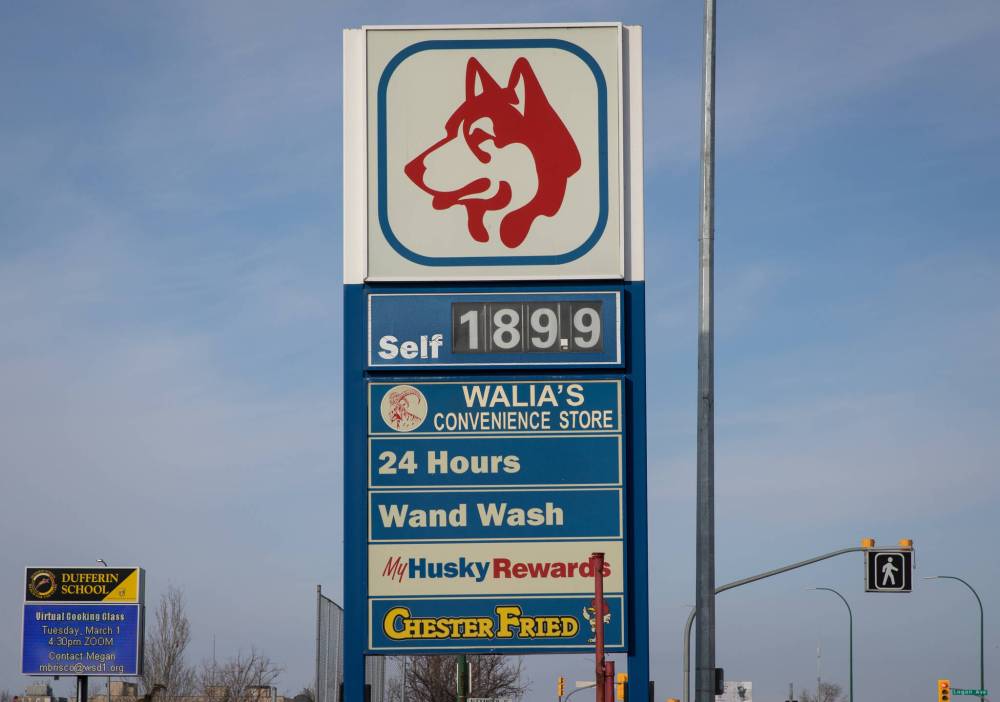
He anticipated the increase: suppliers are currently spending about $1.64 per litre to replace the gasoline they’re selling, and companies usually add an extra 10 cents per litre for revenue, he said.
But, $1.89.9 for fuel is more expensive than Toronto, McTeague said.
“They may have picked a number that’s way too high,” he said. “They’re protecting themselves and passing on an increase in prices that isn’t reality yet.”
Gas Wizard, a fuel prediction website McTeague runs, guesses regular gasoline will cost $1.86 in Winnipeg Tuesday.
Manitobans should be watching diesel prices too, McTeague said.
“That’s the one that keeps me up at night,” he said. “That’s the fuel you can’t do without. It runs your industry, your transportation sector… Pretty much the entire structure of the cost of living.”
Diesel has jumped as much as six cents per litre, McTeague said. Midday Monday, diesel prices hovered around $1.87 per litre.
“At the end of the day… (it) ultimately finds its way to increased costs to Canadians,” said Tom De Nardi, president of Mondo Foods, a food supplier.
Mondo Foods’s freight costs have nearly doubled compared to two years ago, De Nardi said.
Incoming goods, like cheese from Italy, are more expensive to receive. The costs are passed to the customer, whether it’s a grocery store or restaurant, De Nardi said.
Exporting goods — like shipping the cheese within Manitoba — is also more expensive. Those costs, too, are passed to the customer.
“It’s causing a lot of problems,” De Nardi said.
The inflated gas prices come after the transportation sector has faced other cost increases, including a lack of containers and truckers.
On top of higher prices for supplies, Thomas Schneider, the owner of Tommy’s Pizzeria, can’t find drivers.
“Drivers are not really wanting to drive, so it makes things difficult,” Schneider said.
The staff pay for their own fuel and make money through tips and delivery fees. The restaurant will have to raise its delivery fee to offset the rising prices, Schneider said.
“I’ll probably just have to pay them more,” he said. “I’ll have to give them a little extra every hour they work, or if they don’t make enough money in the shift, I’ll have to top them up.”
But, Schneider’s food costs have jumped 30 to 50 per cent. He said he’s experiencing food shortages from suppliers, further complicating matters.
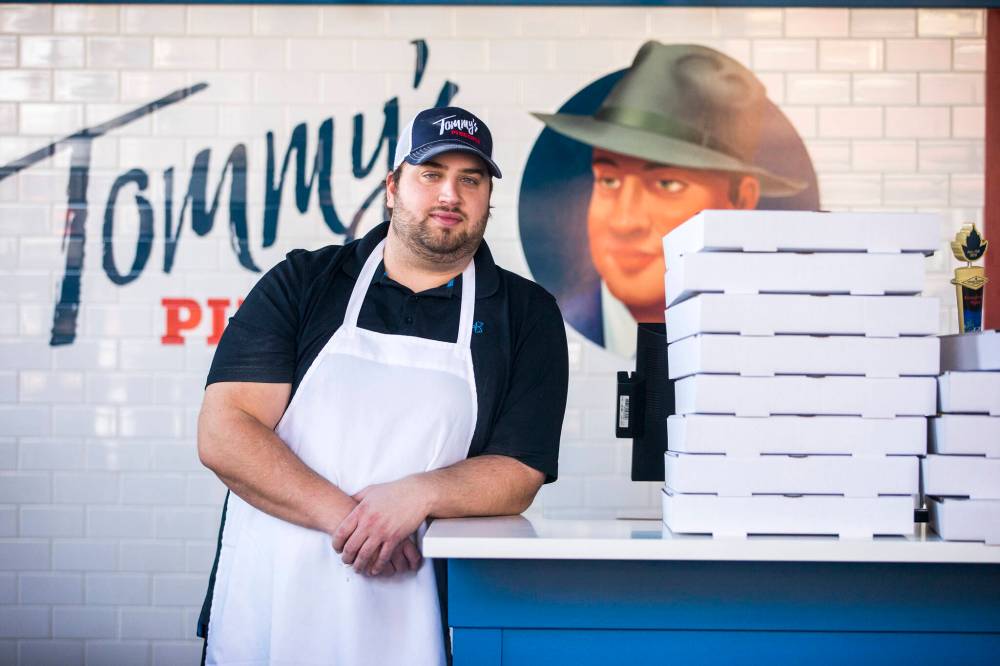
“Arugula is a huge thing we’re short on all the time, so I’m having to go to… grocery stores and buy it at the price that everyone else is buying it, not at wholesale,” he said.
He’s coming off two years of scaling operations up and down with public health restrictions, and he plans to increase his menu prices.
“I’ve been needing to raise my prices for a while,” Schneider said. “I just think they’re already pretty high, and I don’t know how the customers are going to take it.”
The change is for survival, he said.
“I’m just trying to break even, or come close to breaking even, so that once this is all over, I’ll still be around.”
Thousands of Manitobans who hadn’t used food banks are now doing so, and it’s largely because of inflation, according to Vince Barletta, Harvest Manitoba’s CEO.
“They simply can’t make ends meet, and the biggest problem is the price of food… and other supplies,” Barletta said. “Now we add the high price of gasoline into that mix — we expect that we’re going to see these challenges with us for many months ahead.”
Last January was the fifth month in a row where over 11,000 households requested hampers, Barletta said. In January of 2021, the number was closer to 9,000.
The cost to build and renovate homes is also increasing, said Peter Squire, the Winnipeg Regional Real Estate Board’s vice-president of external relations and market intelligence.
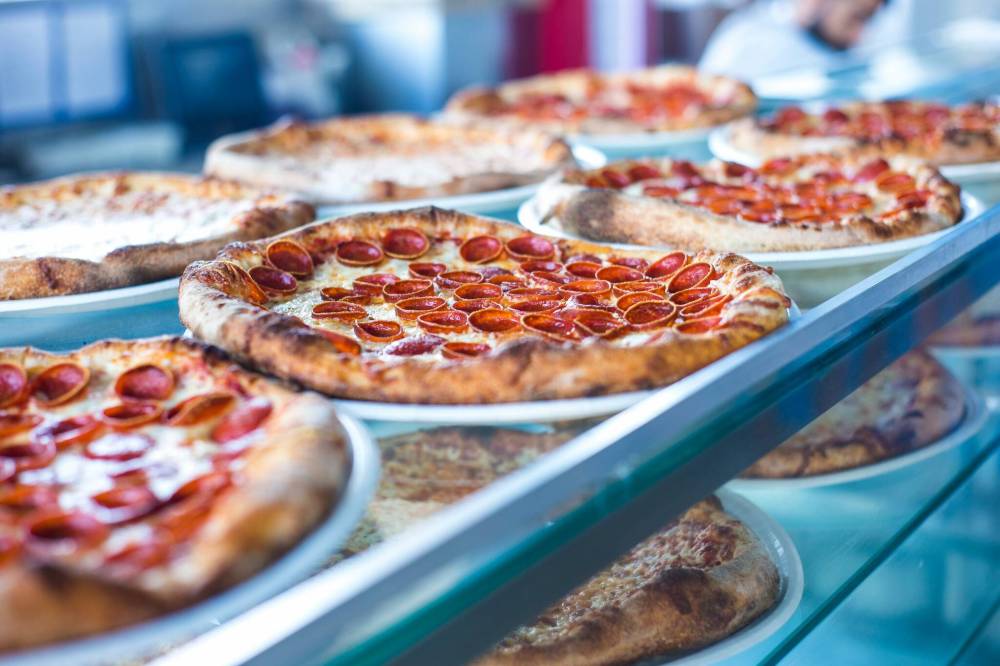
However, he doesn’t expect the rising cost of fuel to stop potential home buyers from making their purchases.
“They may cut back in other areas of their expenses and be more judicious in how they manage their trips and other items, like groceries,” he said.
Canada’s rising interest rate likely won’t stop the sales either, he said. It might spur “fence sitters” to taking action before the Bank of Canada makes it next increase, he added.
The Bank of Canada increased its interest rate to 0.5 per cent last week to combat inflation.
gabrielle.piche@winnipegfreepress.com

Gabby is a big fan of people, writing and learning. She graduated from Red River College’s Creative Communications program in the spring of 2020.
Our newsroom depends on a growing audience of readers to power our journalism. If you are not a paid reader, please consider becoming a subscriber.
Our newsroom depends on its audience of readers to power our journalism. Thank you for your support.





